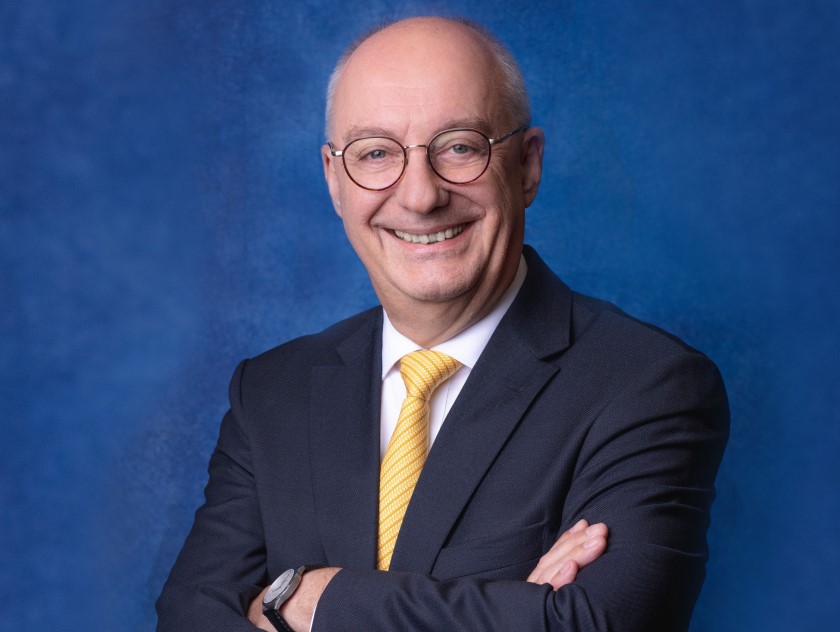SINGAPORE - Singapore will compete harder to be the destination for multinational corporations (MNCs) looking to relocate their operations and research and development facilities in the face of US tariffs.
This was named as a priority of the Economic Strategy Review (ESR) Committee on Global Competitiveness during a press conference on Aug 4.
Besides working with MNCs like Siemens and Agilent Technologies to expand their footprint in Singapore, the committee will “identify new growth sectors and take bigger bets in them”, said Acting Transport Minister Jeffrey Siow, who was named as its co-chair alongside Senior Minister of State for Trade and Industry Low Yen Ling.
Singapore’s economic strategies must adapt to the uncertain landscape, even if it causes more volatility in growth benchmarks, he said.
“Fortunately, we start from a strong foundation. Our core economic strategies remain relevant, but we must be more decisive in pursuing new growth areas, in backing high-potential companies, and to take calculated risks,” Mr Siow added.
“This may mean accepting a greater degree of volatility, for example, in economic growth or even unemployment, but doing so gives us the best chance of taking our economy to a higher level.”
One focus area would be advanced manufacturing, which is seeing a resurgence in interest around the world. “This is now an area that is clean, smart and productive,” said Mr Siow, who is also Senior Minister of State for Finance.
“The sector is creating high-quality jobs that blend digital and technical skills, which will fit the profile of our future Singapore workforce,” he added.
At home, the committee will support Singapore companies that are looking to establish a global presence.
Mr Siow also said he sees opportunities beyond the US and China, in markets like India and Southeast Asia.
He said: “We want to support companies that already have significant operations in these markets, companies like Keppel, Sats, ST Engineering, and we will help them to do more.
“For some of our other fast-growing companies... we want them to enter, expand and deepen their roots in these strategic markets, and we will support them to do so.”
The committee also hopes to make Singapore a global hub for data and low-carbon energy, by making early investments in infrastructure and other capabilities.
Eleven corporate leaders, including executives from chip equipment maker Applied Materials and DBS Group, will sit on the committee as members. The committee will consult widely with the private sector, before providing an update on its work in early 2026.
The formation of the ESR comes as US tariffs have increased the uncertainty faced by businesses and economies.
Singapore’s baseline tariff rate of 10 per cent is currently the lowest among countries in Asia.
However, the open markets that have driven the country’s success in the past are receding, with many countries adopting protectionist measures to guard their markets, Mr Siow said.
The Singapore economy is also undergoing a structural shift in the face of artificial intelligence (AI), a low-carbon transition, and an ageing workforce.
AI is another focus of Singapore’s economic strategy, under the ESR Committee on Technology and Innovation.
The committee will drive sectors like advanced manufacturing, healthcare services and finance as pace setters for innovation.
It will look to sustain an innovation ecosystem, drawing on the Government’s previous experience in setting up hubs like the start-up-focused Block71.
It will also review efforts to develop local AI talent and attract global AI specialists to Singapore.
Finally, it hopes to raise AI fluency and adoption among small and medium-sized enterprises.
“AI isn’t just for tech giants, it is for every Singaporean’s tomorrow,” said Minister of State for Digital Development and Information Jasmin Lau, who co-chairs the committee with Ms Goh Hanyan, Senior Parliamentary Secretary at the Ministry of Culture, Community and Youth.
Ms Lau, who is also Minister of State for Education, said the committee will work with the Institute of Technical Education, polytechnics and universities to allow students to work on industry projects to gain domain knowledge of AI.
“We will not let others ride the AI wave while we stand on the shore and watch, because ultimately, what we do in this committee must translate into good jobs for our people,” she said. “We will coordinate our committee’s work very closely with the other committees on human capital and managing the impact of restructuring.”

